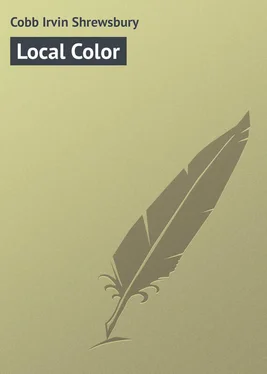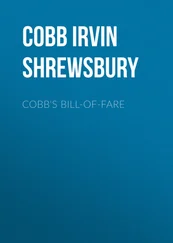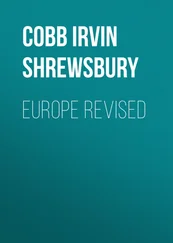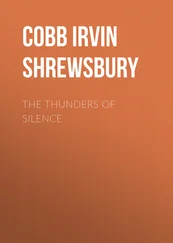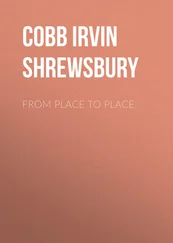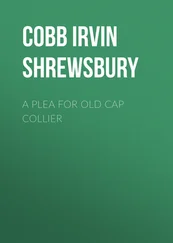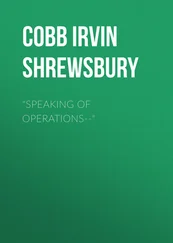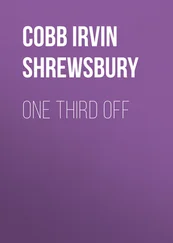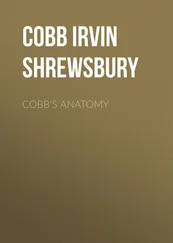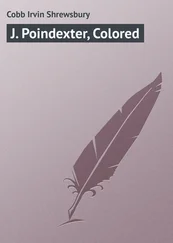Irvin Cobb - Local Color
Здесь есть возможность читать онлайн «Irvin Cobb - Local Color» — ознакомительный отрывок электронной книги совершенно бесплатно, а после прочтения отрывка купить полную версию. В некоторых случаях можно слушать аудио, скачать через торрент в формате fb2 и присутствует краткое содержание. Жанр: foreign_prose, на английском языке. Описание произведения, (предисловие) а так же отзывы посетителей доступны на портале библиотеки ЛибКат.
- Название:Local Color
- Автор:
- Жанр:
- Год:неизвестен
- ISBN:нет данных
- Рейтинг книги:5 / 5. Голосов: 1
-
Избранное:Добавить в избранное
- Отзывы:
-
Ваша оценка:
- 100
- 1
- 2
- 3
- 4
- 5
Local Color: краткое содержание, описание и аннотация
Предлагаем к чтению аннотацию, описание, краткое содержание или предисловие (зависит от того, что написал сам автор книги «Local Color»). Если вы не нашли необходимую информацию о книге — напишите в комментариях, мы постараемся отыскать её.
Local Color — читать онлайн ознакомительный отрывок
Ниже представлен текст книги, разбитый по страницам. Система сохранения места последней прочитанной страницы, позволяет с удобством читать онлайн бесплатно книгу «Local Color», без необходимости каждый раз заново искать на чём Вы остановились. Поставьте закладку, и сможете в любой момент перейти на страницу, на которой закончили чтение.
Интервал:
Закладка:
Being the terminus of the division, it was the train’s destination and the destination of Mr. Tuttle. He possessed himself of an imitation leather handbag and descended on solid earth with the assured manner of a seasoned and experienced traveller. Doubtless because of the flurry created by the train’s arrival and the bustling about of other arrivals his advent created no visible stir among the crowd at the terminal. At least he noticed none. Still, these people had no way of knowing who he was.
In order to get the Union Depot closer to the railroad it had been necessary to place it some distance away from the heart of things; even so, metropolitan evidences abounded. A Belt Line trolley car stood stationary, awaiting passengers; a vociferous row of negro hackmen were kept in their proper places by a uniformed policeman; and on the horizon to the westward a yellow radiance glowed above an intervening comb of spires and chimneys, showing where the inhabitants of the third largest second-class city in the state made merry at carnival and street fair, to celebrate the dedication and opening of their new Great White Way – a Great White Way seven blocks long and spangled at sixty-foot intervals with arc lights disposed in pairs on ornamental iron standards. Hence radiance.
Turning westward, therefore, Mr. Tuttle found himself looking along a circumscribed vista of one-story buildings with two-story fronts – that is to say, each wooden front wall extended up ten or fifteen feet above the peak of the sloping roof behind it, so that, viewed full-on, the building would have the appearance of being a floor taller than it really was. To add to the pleasing illusion certain of these superstructures had windows painted elaborately on their slab surfaces; but to one seeking a profile view the false work betrayed a razor-like thinness, as patently flat and artificial as stage scenery.
Travellers from the Eastern seaboard have been known to gibe at this transparent artifice. Even New York flat dwellers, coming direct from apartment houses which are all marble foyers and gold-leaf elevator grilles below and all dark cubby-holes and toy kitchens above, have been known to gibe; which fact is here set forth merely to prove that a sense of humour depends largely on the point of view.
To our Mr. Tuttle such deceits were but a part of the ordered architectural plan of things, and they moved him not. What did interest him was to note that the nearmost of these bogusly exalted buildings displayed, above swinging twin doors, a cluster of lights and a sign testifying that this was the First Chance Saloon. Without looking he sensed that the reverse of that Janus-faced sign would advertise this same establishment as being the Last Chance. He did not know about Janus, but he did know about saloons that are handily adjacent to union depots. Moreover, an inner consciousness advised him that after a dry sixty-mile trip he thirsted amain. He took up his luggage and crossed the road, and entered through the knee-high swinging doors.
There was a bar and a bar mirror behind it. The bar was decorated at intervals with rectangles of fly paper, on the sticky surfaces of which great numbers of flies were gummed fast in a perished or perishing state; but before they became martyrs to the fad of sanitation these victims had left their footprints thickly on the mirror and on the fringes of coloured tissue paper that dangled from the ceiling. In a front corner, against a window, was a lunch counter, flanked on one side by stools and serving as a barricade for an oil stove and shelves of cove oysters in cans, and hams and cheeses for slicing, and vinegar cruets and pepper casters and salt cellars crusted with the saline deposits of the years. A solitary patron was lounging against the bar in earnest conversation with the barkeeper; but the presiding official of the food-purveying department must have been absent on business or pleasure, for of him there was no sign.
Gash Tuttle ordered a beer. The barkeeper filled a tall flagon with brew drawn from the wood, wiped the clinging froth from its brim with a spatulate tool of whittled cedar, and placed the drink before the newcomer, who paid for it out of a silver dollar. Even as Mr. Tuttle scooped in his change and buried the lower part of his face in the circumference of the schooner he became aware that the other customer had drawn nearer and was idly rattling a worn leather cup, within which dice rapped against the sides like little bony ghosts uneasy to escape from their cabinet at a séance.
The manipulator of the dice held a palm cupped over the mouth of the cup to prevent their escape. He addressed the barkeeper:
“Flem,” he said, “you’re such a wisenheimer, I’ll make you a proposition: I’ll shake three of these here dice out, and no matter whut they roll I’ll betcha I kin tell without lookin’ whut the tops and bottoms will come to – whut the spots’ll add up to.”
The other desisted from rinsing glassware in a pail beneath the bar.
“Which is that?” he inquired sceptically. “You kin tell beforehand whut the top and bottom spots’ll add up?”
“Ary time and every time!”
“And let me roll ’em myself?”
“And let you roll ’em yourself – let anybody roll ’em. I don’t need to touch ’em, even.”
“How much’ll you risk that you kin do that, Fox?” Roused greed was in the speaker’s tone.
“Oh, make it fur the drinks,” said Fox – “jest fur the drinks. I ain’t aimin’ to take your money away frum you. I got all the money I need.” For the first time he seemed to become aware of a third party and he turned and let a friendly hand fall on the stranger’s shoulder. “Tell you whut, Flem, we’ll make it drinks fur this gent too. Come on, brother,” he added; “you’re in on this. It’s my party if I lose, which I won’t, and ole Flem’s party if he loses, which he shore will.”
It was the warmth of his manner as much as the generosity of his invitation that charmed Mr. Tuttle. The very smile of this man Fox invited friendship; for it was a broad smile, rich in proteids and butterfats. Likewise his personality was as attractively cordial as his attire was striking and opulent.
“‘Slide or slip, let ’er rip!’” said Mr. Tuttle, quoting the poetic words of a philosopher of an earlier day.
“That’s the talk!” said Fox genially. He pushed the dice box across the bar. “Go to it, bo! Roll them bones! The figure is twenty-one!”
From the five cubes in the cup the barkeeper eliminated two. He agitated the receptacle violently and then flirted out the three survivors on the wood. They jostled and crocked against one another, rolled over and stopped. Their uppermost faces showed an ace, a six and a five.
“Twelve!” said Flem.
“Twelve it is,” echoed Fox.
“A dozen raw,” confirmed Gash Tuttle, now thoroughly in the spirit of it.
“All right, then,” said Fox, flashing a beam of admiration toward the humourist. “Now turn ’em over, Flem – turn ’em over careful.”
Flem obeyed, displaying an ace, a deuce and a six.
“And nine more makes twenty-one in all!” chortled Fox triumphantly.
As though dazed, the barkeeper shook his head.
“Well, Foxey, ole pardner, you shore got me that time,” he confessed begrudgingly. “Whut’ll it be, gents? Here, I reckin the cigars is on me too, after that.” From a glass-topped case at the end of the bar alongside Gash Tuttle he produced a full box and extended it hospitably. “The smokes is on the house – dip in, gents. Dip in. Try an Old Hickory; them’s pure Tampas – ten cents straight.”
He drew the beers – large ones for the two, a small one for himself – and raised his own glass to them.
“Here’s to you and t’ward you!” he said.
Читать дальшеИнтервал:
Закладка:
Похожие книги на «Local Color»
Представляем Вашему вниманию похожие книги на «Local Color» списком для выбора. Мы отобрали схожую по названию и смыслу литературу в надежде предоставить читателям больше вариантов отыскать новые, интересные, ещё непрочитанные произведения.
Обсуждение, отзывы о книге «Local Color» и просто собственные мнения читателей. Оставьте ваши комментарии, напишите, что Вы думаете о произведении, его смысле или главных героях. Укажите что конкретно понравилось, а что нет, и почему Вы так считаете.
